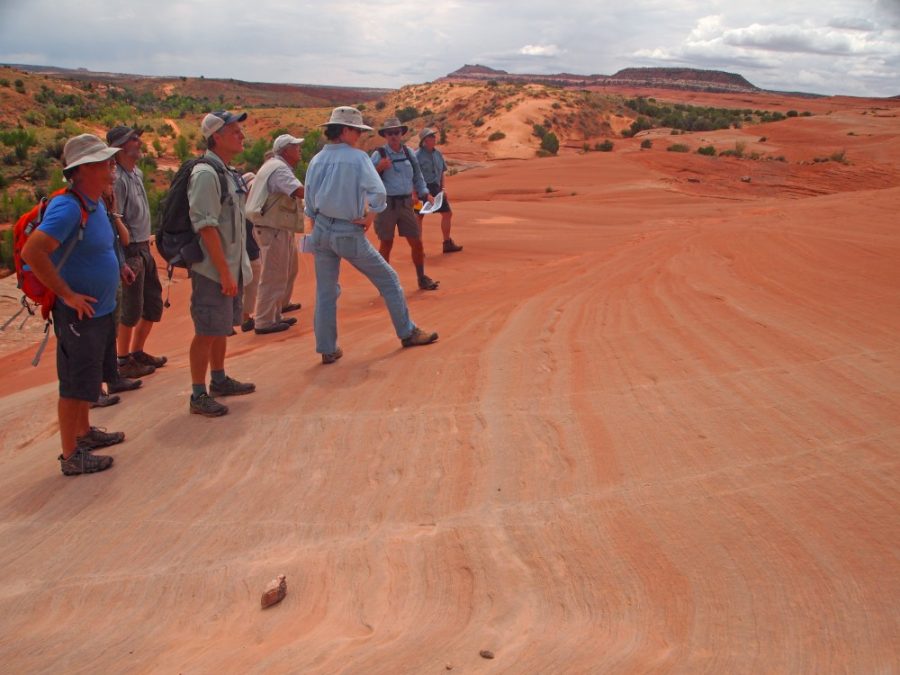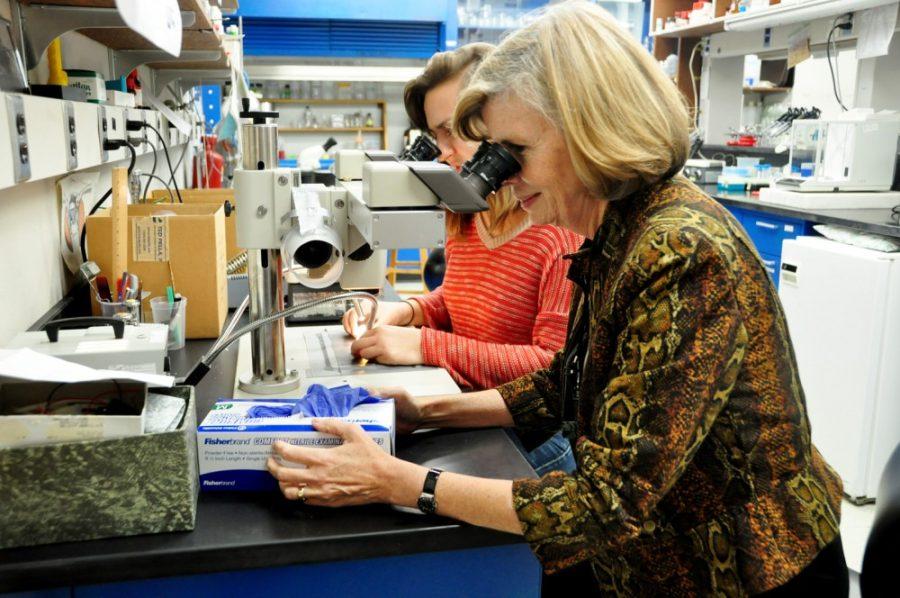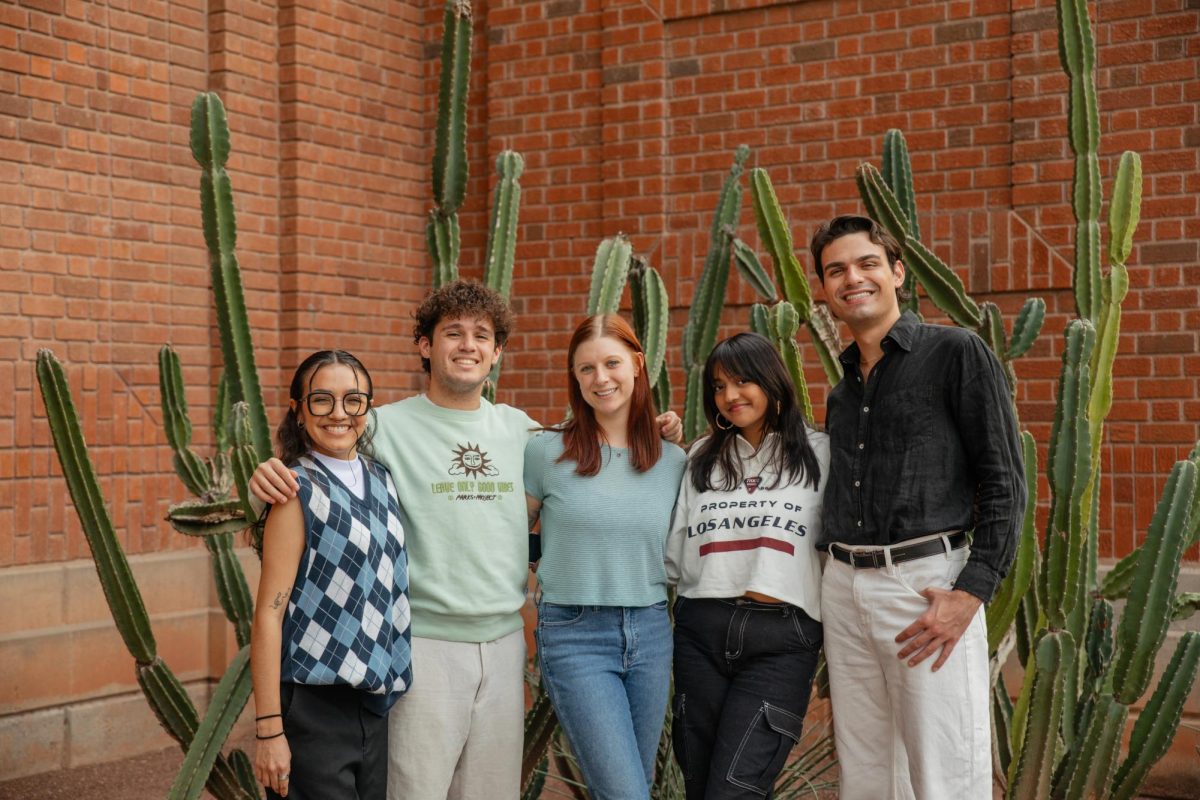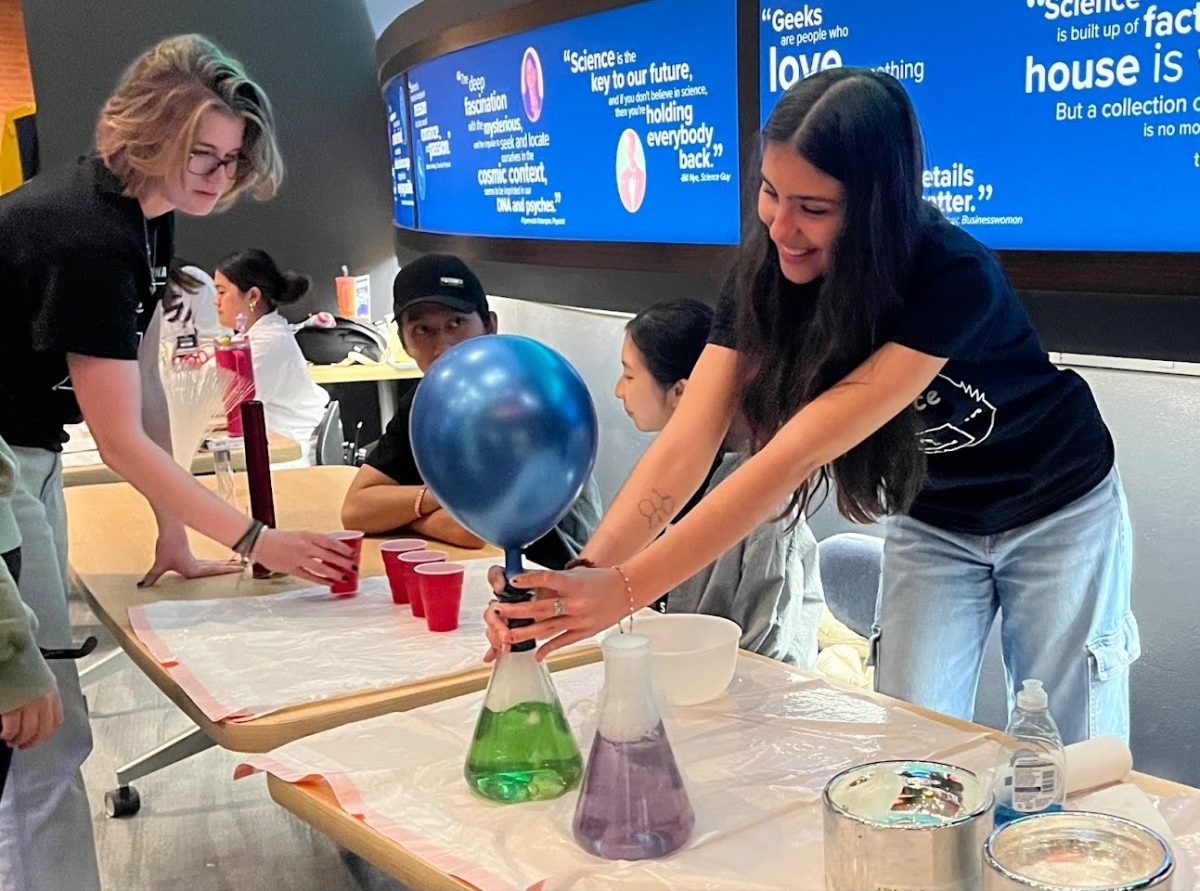The W.M. Keck Foundation has awarded the University of Arizona geoscientists a three-year, $1 million grant to research fluids beneath Earth’s surface.
The goal of the project, titled “Evolution of Crustal Paleofluid Flow Systems,” is to get a better understanding of the effects and reactions of underground fluids, such as oil, groundwater and gas.
“We want to understand where underground fluids come from, how they flow and react with the rocks they move through, what kinds of forces generate and move them around and how that relates to the geologic history of a region,” said professor Peter Reiners, department head of geosciences at UA.
Reiners is leading a team of mostly UA scientists in this project. They will be venturing to the Paradox Basin in Eastern Utah and Western Colorado, an area that has historically been a geological hotspot. The flow of subsurface fluids there over the last 300 million years has resulted in deposits of uranium, copper, gas and other substances.
More notably, the Paradox Basin is one of the top 40 oil fields in the world, producing more than 450 million barrels of oil in its lifetime. This makes it the optimal location to conduct this kind of research.
RELATED: Banner Health Quick Care clinics opens in Safeway
While most geological studies of this nature focus on isolated portions of subsurface fluid reactions, Reiners and his team said they want to take a more comprehensive look into this 300 million-year-old formation.
The team will use a variety of techniques to understand what’s beneath the surface. One involves boreholes or wells, holes drilled deep into the surface of the Earth, to examine underground fluid or rock samples. Another side of the research will involve geophysical surveys, analyzing seismic waves and electrical resistance to create a layout of the world underneath.
“Much of what we will be doing will be combining these approaches with evidence for paleofluid flow we see in the rocks at the surface today,” Reiners said.
The W.M. Keck Foundation is a philanthropic organization based in Southern California. Its goal is to support projects that create far-reaching benefits to humanity. In recent years, the foundation has focused on science, engineering and medical research, encouraging recipients to take groundbreaking approaches to their area of study.

The UA is only one of four science and engineering recipients this year, with the other recipients coming from Cornell University, Temple University and University of California, Berkeley, but for good reason, according to Reiners.
“We have some of the best geoscientists and hydrologists in the world here and special expertise in ore deposits, sedimentary basin evolution, faulting and geochronology,” Reiners said. “We’ve also teamed up with an expert in hydro-geophysical computer modeling from New Mexico Tech. That makes this group uniquely well-qualified.”
Reiners said one of the main challenges of the project will be combining the wide range of techniques and approaches that are usually applied separately to understand a complex system.
“Usually, scientists only look at a small part,” Reiners said. “We want to understand not just the groundwater or the hydrocarbons or the ore deposits; we want to understand all of them and how they relate to one another.”
RELATED: UA Museum of Art’s Mapping Q exhibit explores LGBTQ representation
Understanding the effects and reactions of these subsurface fluids will help with the better management of groundwater, energy and mineral resources. In addition, this research will improve the understanding of energy waste, like nuclear waste and CO2 sequestration.
“We need to understand how these complex systems evolve over time in order to manage them effectively,” Reiners said.
While Reiners has conducted this type of research before, he said this research at the Paradox Basin will be the most ambitious project he and his associates have tackled. However, with the expertise the team brings to the table, this project will certainly broaden the understanding of the world just below our feet.
Follow Chandler Donald on Twitter









